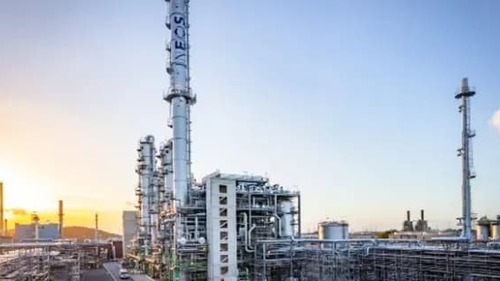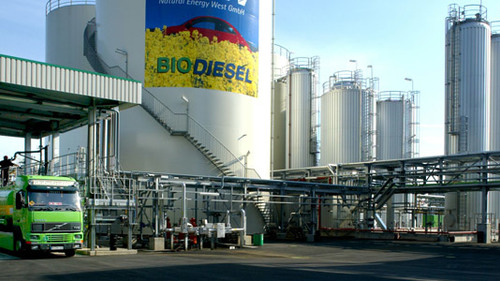INEOS Phenol starts up Europe's largest Cumene facility and halves CO2 emissions in Marl, Germany
- The world scale 750,000 kt/a plant reduces CO2 emissions by 50% per tonne
- Cumene is essential to the production of Phenol used in healthcare and cleaning products
- Hans-Juergen Bister, Operations Director for INEOS Phenol: “Phenol is an essential component of our everyday lives. To be able to produce phenol with cumene that has a dramatically reduced carbon footprint is a game-changer.”
- The plant was constructed in association with CAC Engineering GmbH, who managed the project in close cooperation with INEOS under an EPCM[1] model.
INEOS Phenol has started production at Europe’s largest Cumene facility in Marl, Germany.The world scale 750,000 tonne facility produces up to 50% lower CO2 emissions per tonne of product. The significant reduction in emissions is enabled by pioneering cumene technology in combination with unique heat integration at the Marl Chemical Park.
The well located plant will use existing pipeline connections between INEOS’ phenol and acetone production sites in Gladbeck, the Evonik Chempark in Marl, and the BP refinery and cracker complex in Gelsenkirchen. The site also benefits from the nearby Marl harbour waterway connection. Most of the waste heat from the plant is used for a district heating circle further reducing the carbon footprint of the site.
Cumene is an essential raw material in the production of phenol and acetone, which are used in a wide variety of applications including medical applications ranging from aspirin to throat lozenges and sprays. Their derivatives are also used in contact lenses, artificial joints, dentures and dental fillings, as well as many other applications.
INEOS is the world’s largest producer of phenol and acetone, and the largest consumer of cumene.
The plant was constructed in association with CAC Engineering GmbH, who managed the project under an EPCM model. CAC work included FEED verification, detail engineering, procurement, construction and pre-commissioning of the plant.
Hans-Juergen Bister, Operations Director for INEOS Phenol, said: “We are delighted that INEOS Phenol’s world scale facility is up and running. The unit strengthens our European Phenol position in terms of feed-stock supply. At the same time it helps to reduce the carbon footprint of the business.”
“We are investing heavily in reducing our carbon footprint when producing essential materials. We know our customers are doing the same and supplying them with an equally strong and reliable product but with a significantly lower environment impact is an enormous step forward.”
Mike Niederstadt, Managing Director of CAC said. “The technical, organisational and above all human input involved here make this a flagship project for CAC. “Not only does this project go down in our company history as our largest ever engineering assignment and a fantastic reference, it also represents the outstanding collaborative partnership with INEOS Phenol.”
[1] Engineering Procurement and Construction Management Model.
Categories
Investments
2018-05-08
at Marl Chemical Park (DE)Latest news
INEOS launches €250m investment supported by the French Government to secure the future of French industry at Lavera
The project marks the first phase of a long-term regeneration plan to reduce emissions, boost reliability, efficiency and competitiveness, with support of the French State.
Hycamite’s technology to decarbonize shipping awarded AiP by industry leader DNV
Kokkola Industrial Park →Hycamite’s proprietary Thermo-Catalytic Decomposition (TCD) technology offers a new approach to producing clean hydrogen by breaking down methane, the primary component of liquefied natural gas (LN...
Clariant catalysts will power the Ecoplanta: Europe's first waste-to-methanol plant
Chemmed Cluster Tarragona →Repsol is building Europe’s first plant to produce renewable methanol from urban waste The facility will use Enerkem gasification technology to produce 240 KTA of methanol Clariant will supply cata...
Lilly plans to build a new $3 billion facility to boost oral medicine manufacturing capacity in Europe for patients worldwide
Netherlands site will bring 500 manufacturing and 1,500 construction jobs while further strengthening Lilly's global supply chain


